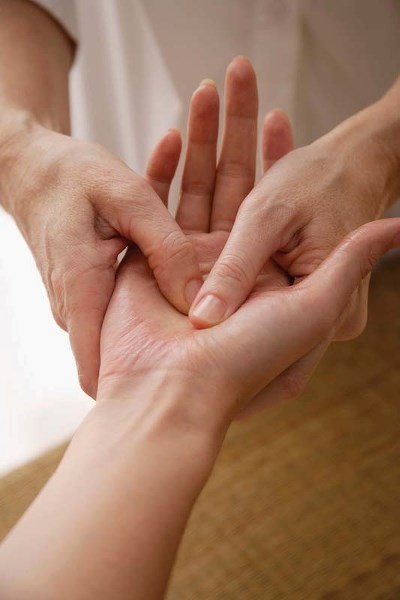A traditional Japanese massage practice may help people living with chronic pain to fall and stay asleep, found a small pilot study by researchers at the University of Alberta.
Published in the Journal of Integrative Medicine, the pilot followed nine people living with chronic pain as they self-administered shiatsu pressure techniques on their hands at bedtime.
The participants were taught the techniques by occupational therapy and physical therapy students.
Participants reported falling asleep faster – sometimes even while administering treatment – and slept longer after two weeks and eight weeks of treatment, compared with baseline measurements.
“We know that sleep involves both physiology and learning. You don’t just flip a switch and go to sleep,” said Cary Brown, an associate professor of occupational therapy in the faculty of rehabilitation medicine, in a release.
“What we saw with this pilot is that it appears self-shiatsu may help your body to prepare for sleep and help you stay asleep for longer periods.”
Researchers note that taking control of a sleep problem in the form of self-administering hand shiatsu requires more mental effort than passively going to a therapist. They would like to further explore the theory of cognitive attention, its role in sleep and pain management (sleep deprivation lowers a person’s pain threshold, amongst other things).
Given the small sample size, self-reported nature of the data and limitations in gender, strong conclusions cannot be drawn, but the results are promising enough to warrant further study, Brown said.
The study is part of an attempt to explore low-cost alternatives to drugs to help people with chronic pain fall asleep.
Menthol cigarette smokers are three times less likely to quit smoking than non-menthol smokers, says a new study by researchers at the University of Waterloo.
The study is the first to directly link menthol cigarettes to elevated nicotine addiction among youth in Canada.
Researchers found that menthol users smoked an average of 43 cigarettes a week, close to double the 26 smoked by non-menthol users. Menthol smokers were almost three times more likely to report that they intend to continue smoking in the next year.
Almost one in 10 Canadian high school students from grades 10 to 12 are current smokers; the majority of long-term adult smokers start smoking during their adolescence. The National Youth Smoking Survey has found that 32 per cent of high school smokers smoke menthols.
“Our findings indicate that youth smoking of menthol cigarettes is a serious concern,” said Sunday Azagba, lead author. “It’s clear moving forward that we need new laws to ban all added flavours in all tobacco products."
Last fall, the legislative assembly approved Bill 206 – the Flavoured Tobacco Products Amendment Act – which would give the government the authority to ban all flavoured tobacco products including menthol cigarettes. The bill is awaiting final proclamation by the provincial cabinet.
“This alarming study confirms that menthol cigarettes are more addictive and harmful for youth than unflavoured cigarettes,” said Jeff Cummings with The Lung Association, Alberta & NWT.
“Accordingly, these results justify a complete ban on menthol cigarettes.”




